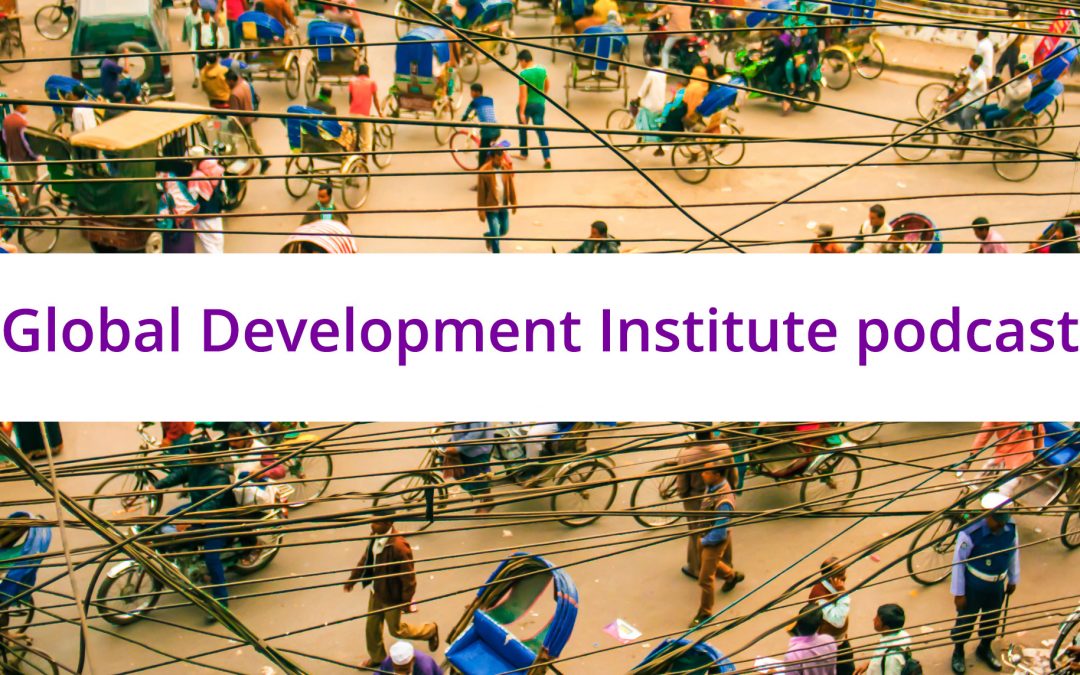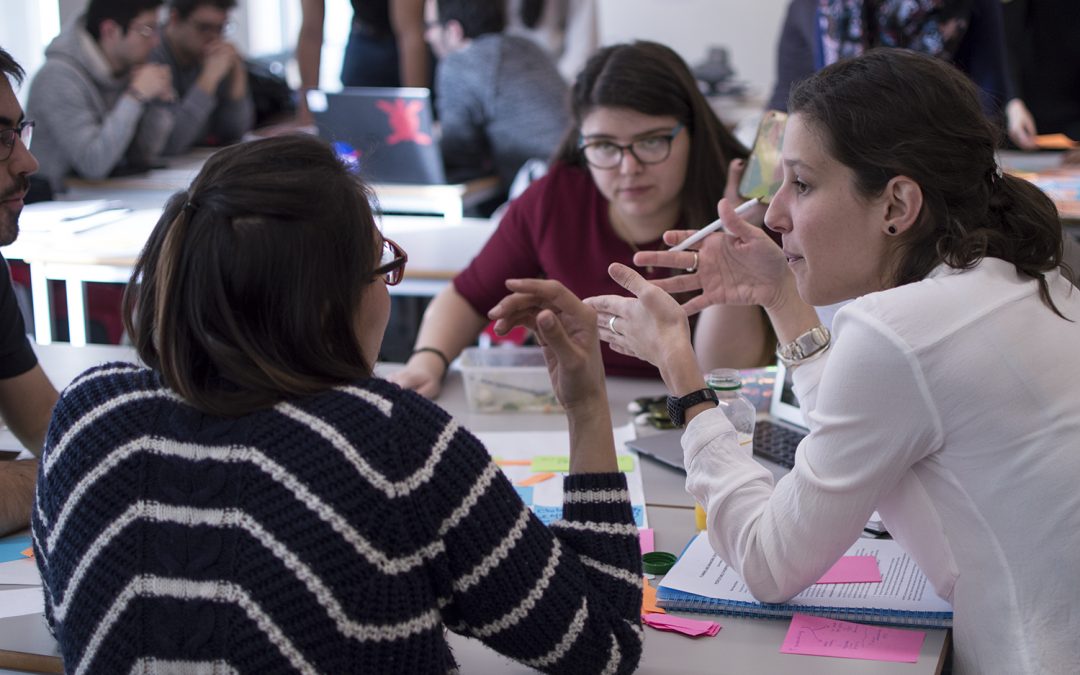
GDI Lecture Series: Democratic deepening in an Indian State with Indrajit Roy
Dr Indrajit Roy gave a lecture entitled ‘Dignifying development: Democratic deepening in an Indian State’. You can listen to the podcast, or watch the lecture below. read more…

Brazil goes to the polls on Sunday in a highly polarised election: quick guide
Dr Chris Lyon, Research Associate, Effective States and Inclusive Development Research Centre
It is the Brazilian general election on Sunday October 7th 2018. It has been a highly volatile, polarised, and unpredictable affair, and on the face of it the choice, at least for President, looks stark. Here’s a quick guide for anyone wanting to follow the results:
- Brazil’s system is presidential; the President is both head of state and of government, and wields considerable power.
- However, the election is also for the lower house (the Chamber of Deputies) within Brazil’s bicameral legislature and for some of the upper house, the Federal Senate. Elections for the former follow a ‘party-list proportional representation’ method. Overall majorities are highly unlikely, and thus coalition politics are a permanent feature of government. So the implications of the presidential result are also shaped by the kind of coalition the President elect’s party can cobble together.
- The presidential race is probably now a two-horse race between Fernando Haddad and Jair Bolsonaro. These are both pretty odd candidates.

Inside the UN General Assembly: a PhD perspective
By Franklin Yayra Adorsu-Djentuh, PhD candidate
On 24th September 2018, a day before the start of the General Debate of the 73rd session of the United Nations General Assembly (UNGA), the General Assembly convened the Nelson Mandela Peace Summit. The focus of the Nelson Mandela Peace Summit is on Global Peace in honour of the centenary of the birth of Nelson Mandela. The Peace Summit aimed at offering world leaders the opportunity to renew their commitment to global peace, conflict prevention, conflict resolution, peace-building, promotion and protection of human rights and long-term development initiatives.

Global value added network from 2002 to 2014: whither Britain?
Gindo Tampubolon, Lecturer in Poverty, Global Development Institute
A short BBC video on How cars are made opens up a view to global production networks traversing the world today. Honda automobile plant in Swindon (Britain) imported alloy wheels for its cars from Ghent (Belgium), delivered in just 8 hours! With tens of thousands other parts assembled into a car, each imported alloy wheel will roll out of Swindon and most likely be exported across the Channel to a third European country. Hondas and other cars assembled in Britain are apt to be found in forecourts and showrooms across Europe.
The production of cars and most goods today, from trousers to smartphones in their pockets, are unlikely wholly made in one place. Production networks are global. These networks make measuring value added in global production not entirely straightforward. Not all the value of automotive export from Honda’s Swindon plant should be assigned to Britain; some should be assigned to Belgium and other countries making the other parts. With tens of thousands of parts involved, opportunities for double-counting abound.

Tackling the youth employment crisis in Tanzania: What can we learn from a project that didn’t work?
Dr Nicola Banks, Lecturer in Urban Development, Global Development Institute
An opportunity arose to pilot an innovative and sustainable revolving savings fund with young motorcycle taxi drivers in Arusha. It didn’t work, but there are important lessons to be learned.

In Conversation: SDGs three years on – are we making progress?
As the 73rd session of the UN General Assembly convenes to review the world’s three year progress against the Sustainable Development Goals, Jennifer O’Brien, Director of Social Responsibility for the School of Environment, Education and Development talks to Prof David Hulme, Executive Director of GDI.
Further reading on the SDGs and review of the MDGs read more…

Pioneers of the GDI Merit Awards arrive in Manchester
There is always a buzz around the start of academic term as thousands descend on campus from around the country – and also around the world. Inductions are held, friends are made as students get united by being lost on campus, students are accosted by information and freebies and everyone is smiling, looking at maps or giving directions.
In a small room traditionally reserved for the ‘Keeper’ in the historic Whitworth building there was a truly special atmosphere as the Global Development Institute welcomed the inaugural recipients of their new masters scholarships the GDI Merit awards; six students chosen from more than 2,700 who applied in a short 5 week period to undertake their first post-graduate studies outside of Africa.

Policy recommendations to save the whole of humanity
By Dr Stacy-ann Robinson, Voss Postdoctoral Research Associate in Environment and Society, Brown University and GDI Alumna
When the Twentieth Conference of Parties to the United Nations Framework Convention on Climate Change (COP20) ended in Lima, Peru in December 2014, the Prime Minister of Tuvalu spoke to the assembled delegates with desperation. The tiny Pacific island loses a few millimetres of ground every year to rising sea water.
“I carry a huge burden and responsibility. I carry their hopes that there will be a future for Tuvalu. This is an enormous burden to carry. It keeps me awake at night. No national leader in the history of humanity has ever faced this question. Will we survive or will we disappear under the sea? I ask you all to think what it is like to be in my shoes. Stop and pause for a moment. If you were faced with the threat of the disappearance of your nation, what would you do?”, said Enele Sosene Sopoaga.

5 top tips for new PhDs
You’ve got a passion for research and your subject and now three years (or more) lies between you and 80,000 of your best words on that subject. We asked our recent PhD graduates and those toiling through their final years to share a few candid tips for success. Here’s what they had to say. read more…

‘We Are Still Here’: Returning to Dhaka, Bangladesh
Dr Sally Cawood, a PhD Alumna of the Global Development Institute recently returned to Bangladesh to feedback her PhD findings on Community Based Organisations (CBOs), water and sanitation in Dhaka’s low-income settlements. This blog shares some reflections on reconnecting with the NGOs, urban poor groups and communities involved in the research.
1: A Waiting Game
On the 20 June 2018, three years after I was in Dhaka to conduct PhD fieldwork, I arrived back in Bangladesh for a much anticipated follow up trip. I planned to return much sooner but, sadly, previous attempts to do so were delayed by security concerns, finalising my PhD and starting a new job. It was the latter, however, that gave me the opportunity to go back. Shortly before completing my PhD, I joined a fantastic team of ‘WASHies’ at the University of Leeds (people who, like me, are passionate about Water, Sanitation and Health, or WASH).
I’m currently a Research Fellow working on the Bill and Melinda Gates-Funded Climate and Cost in Urban Sanitation (CACTUS) Project. My trip to Bangladesh was therefore threefold – scope for CACTUS, supervise an MSc research project, and feedback the PhD findings and revisit the communities I worked in – something I’d been waiting to do for a long time!
